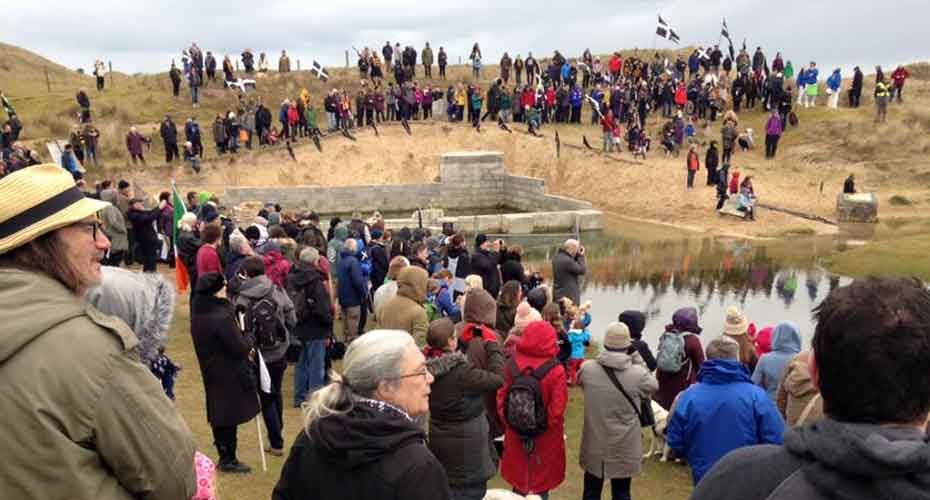Cornish Language and Dialect (Yeth ha Rannyeth Gernewek)
There are many scholars working on the Cornish language and dialect within Cornwall and beyond. These range from undergraduates focusing on Cornish as a case study whenever possible, to a growing number of PhD and Early Career researchers and through to more established academics in various fields relating to both Cornish Studies and languages who are researching many different aspects of Cornish and using the language in their practice. There is a growing interest in sociolinguistics, language attitudes and the use of Cornish overseas, particularly in those countries within the Cornish diaspora. This growing visibility of the Cornish language and dialect within the wider academic community, beyond those scholars with a background within the Cornish language community, is a positive step forward we look forward to making new links and furthering discussions with a network of scholars at all stages of their careers who are interested in Cornish. The ICS has invited these scholars to introduce both themselves and their work on Cornish below.
Authors:
Lucy Ellis (Unit Lead) and Garry Tregidga, University of Exeter
Mark Trevethan, Cornish Language Office, Cornwall Council
Key aims:
- To develop and draw together existing scholarly research on contemporary language use (synchronic linguistics) and language use and development over time (diachronic linguistics).
- To provide an ongoing independent linguistic evaluation of the policy and planning processes of the Cornish Language programme.
- To describe the distinctive accent and dialect patterns of English spoken in Cornwall and to increase understanding and awareness of the retention and regeneration of its usage.
Author: Kensa Broadhurst
Key points
Explores the near fatal decline of Cornish, the myths surrounding its ‘last’ speaker, Dolly Pentreath of Mousehole, and how the language continued to be spoken throughout the 19th century.
Explains who continued to use Cornish during its decline and why many began switching to English.
Encourages the continued revival of Cornish that began with the publication of Henry Jenner’s handbook in 1904 and continues in the 21st century, both in schools and in the wider community.
Author: Kensa Broadhurst
Key points
- Go Cornish programme has seen almost 6000 primary school children sign up to learn Cornish.
- Cornish courses now available for students and to the public via the Exeter’s Language Centre and online.
Author: Dr Deborah C. Darling
Key points
- The general visibility of the language
- The power of the media to influence attitudes to languages
- The use of ‘language’ as a proxy for nation, identity and othering in political rivalry and infighting
Author: Dr Merryn Davies-Deacon
Key points:
- ‘double minoritisation’: where speakers of a minoritized language may be further marginalised because of the language variety they use
- The complex situation of Revived Cornish
- The representation of minoritized languages within academia
Author: Jonathan Westlake
Kay points
- Reconnecting with your roots
- The challenges of being based outside Cornwall
- Indigenous language rights
Author: Katy Humberstone
Key points
- Preserving the authenticities of languages and cultures
- The commodification of Cornish language and heritage in Cornwall
- Cornish heritage in Hidalgo, Mexico
Author: Nicholas Booker, The Ohio State University
Key points
- Cornish-American and Cornish-Canadian musical communities occasionally utilize the Cornish language in conversation and in their music.
- Cornish language songs in North America have at times been adopted from traditions in Cornwall, translated from various sources, or newly composed.
- Even though Cornish language songs in North America are comparatively uncommon, they are important because they may provide inspiration for future work and opportunities to feel more connected with a sense of Cornishness.

